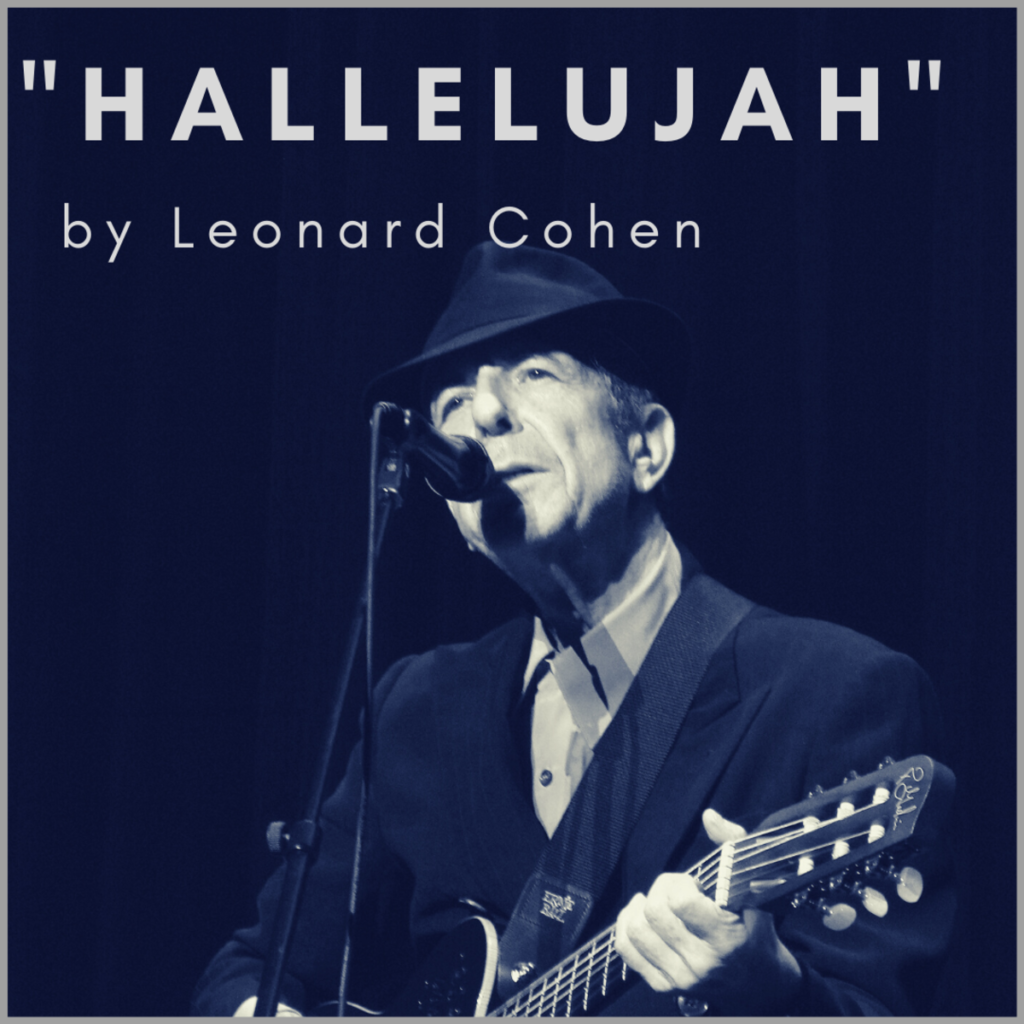Hallelujah is a liturgical expression that has been used for centuries in both Jewish and Christian worship. It is a Hebrew word that means “praise the Lord,” and it appears in the Hebrew Bible in several psalms.
In Christianity, the word “Hallelujah” is used as a form of praise to tank and glorify God. It is often included in prayers and hymns, especially those related to Eastertide, such as “Jesus Christ Is Risen Today.”
One of the most well-known songs that features the word “Hallelujah” is the song of the same name by Leonard Cohen. However, this song is not necessarily a Christian song, despite its use of the word “Hallelujah.” The song’s lyrics reference various biblical stories and characters, but it is not a specifically religious song.
Despite this, many Christians have embraced the song and its message of hope and redemption. The emotional power of the song, combined with its biblical references, has made it a popular choice for Christian worship services and events.
The word “Hallelujah” has a rich history in both Jewish and Christian worship, and it continues to be a powerful expression of praise and thanksgiving to God. While the song “Hallelujah” may not be a specifically Christian song, its message of hope and redemption has resonated with many believers over the years.
The Christian Significance of Hallelujah
Hallelujah is a term that is commonly associated with Christianity. However, its origins can be traced back to the Jewish faith. The word “Hallelujah” is derived from the Hebrew phrase “Hallelu Yah,” which means “praise Yahweh (God).” This phrase is found in the Book of Psalms, which is a collection of prayers and hymns in the Hebrew Bible.
In Judaism, the Hallel prayers are recited during specific religious holidays, such as Passover and Hanukkah, and during oter joyous occasions. The Hallel consists of six psalms (113-118) that are recited as a unit. The phrase “Hallelujah” is used throughout the Hallel as a way to praise God.
In Christianity, the use of the term “Hallelujah” is also common, particularly within liturgical settings. The word is often used as an expression of joy and thanksgiving, and is commonly heard in Christian hymns and songs. The use of “Hallelujah” in Christian worship dates back to the earliest times, and it is found in the liturgies of the Catholic Church, the Lutheran Churches, and the Eastern Orthodox Church.
In the Catholic Church, the term is used in the Mass, particularly during the Easter season. The “Alleluia” is a chant that is sung before the reading of the Gospel, and it is a joyful expression of the Resurrection of Jesus Christ. In the Lutheran Churches, the term is used in hymns and songs, as well as in the liturgy. The “Hallelujah” is often sung during the Easter season, as well as during other joyous occasions. In the Eastern Orthodox Church, the term is used in a similar way, particularly during the celebration of the Resurrection of Christ.
While the term “Hallelujah” has its origins in the Jewish faith, it is also commonly used in Christianity as a way to express joy and thanksgiving. It is found in the liturgies of various Christian denominations, and is often used in hymns and songs.

The Bible’s Connection to the Song Hallelujah
The song “Hallelujah” is indeed from the Bible, specifically from the book of Psalms. The word “Hallelujah” is of Hebrew origin and appears frequently in Psalms 113 to 118 in the Hebrew version of the Bible. In the context of the Psalms, “Hallelujah” is used as an exclamation of praise or thanksgiving to God. The song “Hallelujah” has been interpreted and covered by numerous artists over the years, each adding their own spin to the lyrics and melody. Despite the various interpretations, the song’s biblical roots remain a significant part of its history and meaning.
The Significance of Singing ‘Hallelujah’ in Churches
Churches sing “Hallelujah” as a form of praise and thanksgiving to God. The word “Hallelujah” is derived from the Hebrew language and means “praise Yahweh” or “praise the Lord.” It is a common feature in Christian songs and hymns, particularly during Eastertide, as it celebrates the resurrection of Jesus Christ.
The use of “Hallelujah” has a long history in Judeo-Christian tradition. The Psalms, whch are a collection of religious songs and poems, contain numerous instances of “Hallelujah.” It is also mentioned in the Book of Revelation, where it is used to praise God and celebrate the victory of Christ over death.
In Christian worship, “Hallelujah” is often used in conjunction with other praises and prayers. It is sung or chanted by the congregation or choir, sometimes accompanied by music or instruments. Its repetition and use in various contexts reinforce its significance as a powerful expression of faith and gratitude.
“Hallelujah” is an important part of Christian worship and a way for believers to express their love and devotion to God. Its use in songs and hymns continues to inspire and uplift Christians around the world.
The Religious Meaning of Hallelujah
The religious version of Hallelujah is a Hebrew liturgical expression that is commonly used in Jewish and Christian worship services. The word Hallelujah is derived from two Hebrew words, “hallelu,” which means “praise,” and “Yah,” which is a shortened form of Yahweh, the Hebrew name for God.
In the Hebrew Bible, the term Hallelujah appears in several psalms, where it is used as a call to praise God. It is oftn found at the beginning or end of the psalm, or in both places. The most famous psalm containing Hallelujah is Psalm 150, which is a hymn of praise to God.
In Christian worship, the term Hallelujah is often used as a joyful expression of praise and thanksgiving to God. It is commonly sung or spoken during religious services, especially during times of celebration or after a particularly moving sermon or message.
Hallelujah is a powerful and meaningful word that represents the deep connection between humanity and the divine. Its use in religious worship is a testament to the enduring power of faith and the human need to express gratitude and reverence for a higher power.

Conclusion
Hallelujah is a powerful and widely used liturgical expression that is found in both the Hebrew Bible and Christian prayers and hymns. The word is used to praise and glorify God, and it is oftn used during Eastertide celebrations in the Christian faith. The term has a rich history and has been used for centuries as a way to express deep gratitude and reverence towards the divine. Its use in music, particularly in Leonard Cohen’s iconic song “Hallelujah,” has made it a beloved and recognizable expression of faith and devotion. Hallelujah is an enduring symbol of the human desire to connect with the divine and express our gratitude for all that God has done for us.
